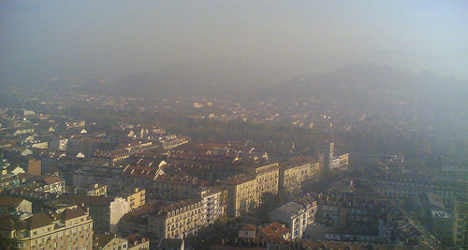The 'Air Quality in Europe 2015' report was published to coincide with the opening of the climate change summit in Paris on Monday.
The EEA said that “air pollution is still the single largest environmental health risk in Europe”, causing an estimated 524,000 premature deaths in 2012 across the 40 countries monitored.
The estimated number of premature deaths due to harmful air across the 28 EU states stood at 491,000 in 2012.
“It shortens people’s lifespan and contributes to serious illnesses such as heart disease, respiratory problems and cancer,” the report said.
The most problematic pollutants affecting human health are particulate matter (PM), ground-level ozone (O3) and nitrogen dioxide (NO2).
In 2012, the majority (59,500) of the air pollution-related deaths in Italy were attributable to PM, while 21,600 were connected to NO2 and 3,300 to O3.
The largest number of deaths attributable to PM were in countries with the largest populations, such as the UK, France, Italy and Germany. But in relative terms, when considering ‘years of life lost’ per 100,000 inhabitants, the largest impact was seen in central and eastern European countries.
“Despite continuous improvements in recent decades, air pollution is still affecting the general health of Europeans, reducing their quality of life and life expectancy,” EEA Executive Director Hans Bruyninckx said in a statement.
“It also has considerable economic impacts, increasing medical costs and reducing productivity through working days lost across the economy.”
Rome, Milan, Turin, Brescia, Naples, Florence and Bologna are among the cities with the poorest air quality.



 Please whitelist us to continue reading.
Please whitelist us to continue reading.
Member comments